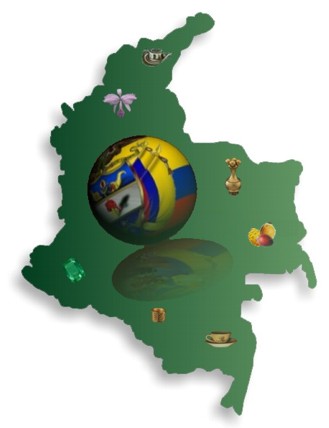America’s Crack: Low Prices
 Buried in the headlines earlier this week was this news about a new trade deal between the US and Colombia. Brought to my attention by a Colombian friend of mine, the deal is yet another that looks good on paper, benefits a narrow set of American interests and victimizes the least of these living way south of our border.
Buried in the headlines earlier this week was this news about a new trade deal between the US and Colombia. Brought to my attention by a Colombian friend of mine, the deal is yet another that looks good on paper, benefits a narrow set of American interests and victimizes the least of these living way south of our border.The deal between the two countries is essentially a free trade agreement, like that already in place between the US and another countries like Mexico and the rest of Central America. The direct benefit is that American producers of exports like chicken, vegetables and other necessities don’t have to pay tariffs on products they send abroad. As a result, those buying the imports get lower priced goods. As I said, it looks good on paper: Americans sell more goods and make more money; Latin Americans pay less money for things like food that they need every day.
In an economy that is only getting poorer, this looks like a sign of hope for the South American lower class, unless of course you’re a farmer or peasant who owns chickens and vegetable farms. Then, of course, you’re screwed because you can’t match the low American prices, so you’re out of work and the bank gets the ranch, but at least you’ve got fifty-cent chicken to munch on in your trailer.
The notion is the same as that of Wal-Mart. Mom and Pop shops can’t keep up with the giant retailer. And because the American consumer in all of us wants to be able to get a table lamp, a gallon of paint, some underwear, bananas and No. 2 pencils (all in one stop) for as cheap as we can, Mom and Pop are forced to close their doors and munch on forty-cent chicken in their trailer.
The notion of capitalism is one that benefits countless individuals and communities. Under this system, risk is rewarded in the form of temporary fame and riches. This is why drug companies can charge so much for a pill the size of your fingernail: they put forth the initial capital and materials to develop the drug, have some misses before they have a hit and now charge you a few hundred bucks for your stomach medicine you need from eating all that thirty-cent chicken in your trailer.
But, just as capitalism can produce untold riches for the daring few, it can equally crush the myriad poor. Those without access to the materials needed to take the risks, those without beneficial birthplaces, and those without a Wal-Mart vendor contract are left to eat the scraps from our tables. While Mom and Pop may be able to land a sweet six-dollar-an-hour job at Wal-Mart (or maybe even an assistant manager’s gig), while we win because we can get our underwear and bananas for a nickel less, and while lower class Colombians get cheaper chicken and rice, someone still loses. Capitalism, with all its notions of greatness and equality that are possible, still leaves victims in its wake.
Tragically we are the victims, but we don’t recognize it as we indulge in our daily habit of low prices. We want the chicken for a quarter, and if a big business like Wal-Mart has to squeeze its vendors or its employees, than that’s the price that is paid for our addiction. Of course, we will end up paying for Wal-Mart employee heath care one way or another. Either we are willing to pay a buck for our chicken, or our tax dollars are used as the employees go to the free city clinic. Either way, we pay. The problem is, like all addictions, ours has fooled us into thinking we are really getting a great deal. Our receipt looks great, but our society is falling apart.
The most tragic part of the Colombian news is that many of the farmers who will not be able to compete with the large scale producers to their north will be forced to grow something else to keep their families afloat: cocaine. With America always complaining about its mounting drug problem (and pointing its finger at the countries that it now trades with for free), the new trade agreement has the potential to make things worse. America has given $5 billion to Colombia to fight drug trafficking since 2000. I suppose we now think we can make this back by selling discount poultry and produce. But, well south of the border, an addiction is brewing of the worst kind.



Comment (1)
3:10 PM
so my thoughts lead me to believe that our right hand doesn't know what checks it's writing, because it would sure not sign over more drug money knowing that it's helping to escalate the problem.
Post a Comment